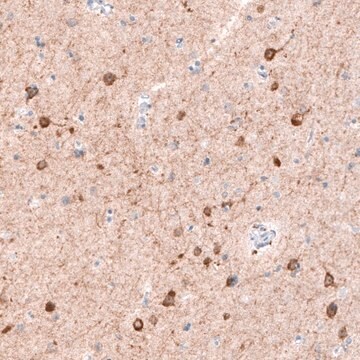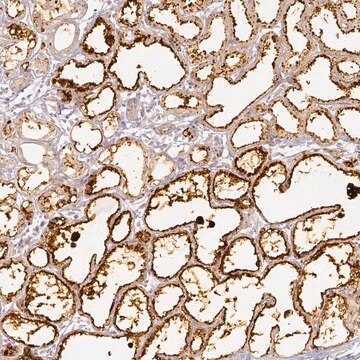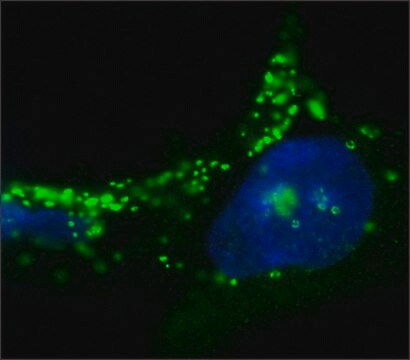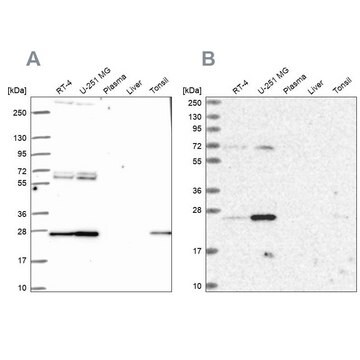MABS1132
Anti-CDKL5 Antibody, clone 8F3.1
clone 8F3.1, from mouse
Sinônimo(s):
Cyclin-dependent kinase-like 5, Serine/threonine-protein kinase 9
About This Item
Produtos recomendados
fonte biológica
mouse
Nível de qualidade
forma do anticorpo
purified antibody
tipo de produto de anticorpo
primary antibodies
clone
8F3.1, monoclonal
reatividade de espécies
mouse, rat
reatividade da espécie (prevista por homologia)
human (based on 100% sequence homology)
técnica(s)
western blot: suitable
Isotipo
IgG1κ
nº de adesão NCBI
nº de adesão UniProt
Condições de expedição
wet ice
modificação pós-traducional do alvo
unmodified
Informações sobre genes
mouse ... Cdkl5(382253)
Descrição geral
Especificidade
Imunogênio
Aplicação
Signaling
Developmental Signaling
Qualidade
Western Blotting Analysis: 0.5 µg/mL of this antibody detected CDKL5 in 10 µg of mouse cerebellum tissue lysate.
Descrição-alvo
forma física
Armazenamento e estabilidade
Outras notas
Exoneração de responsabilidade
Não está encontrando o produto certo?
Experimente o nosso Ferramenta de seleção de produtos.
Código de classe de armazenamento
12 - Non Combustible Liquids
Classe de risco de água (WGK)
WGK 1
Ponto de fulgor (°F)
Not applicable
Ponto de fulgor (°C)
Not applicable
Certificados de análise (COA)
Busque Certificados de análise (COA) digitando o Número do Lote do produto. Os números de lote e remessa podem ser encontrados no rótulo de um produto após a palavra “Lot” ou “Batch”.
Já possui este produto?
Encontre a documentação dos produtos que você adquiriu recentemente na biblioteca de documentos.
Nossa equipe de cientistas tem experiência em todas as áreas de pesquisa, incluindo Life Sciences, ciência de materiais, síntese química, cromatografia, química analítica e muitas outras.
Entre em contato com a assistência técnica








